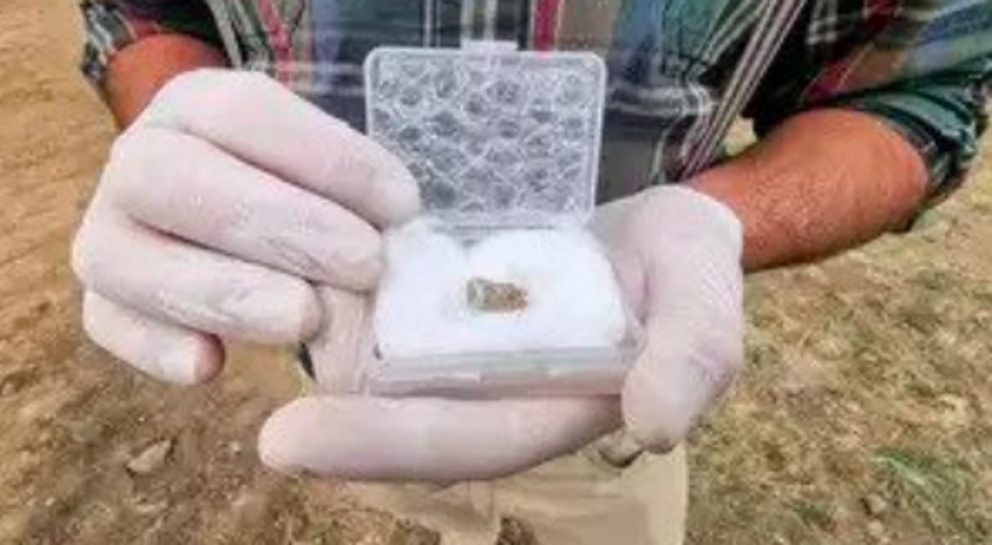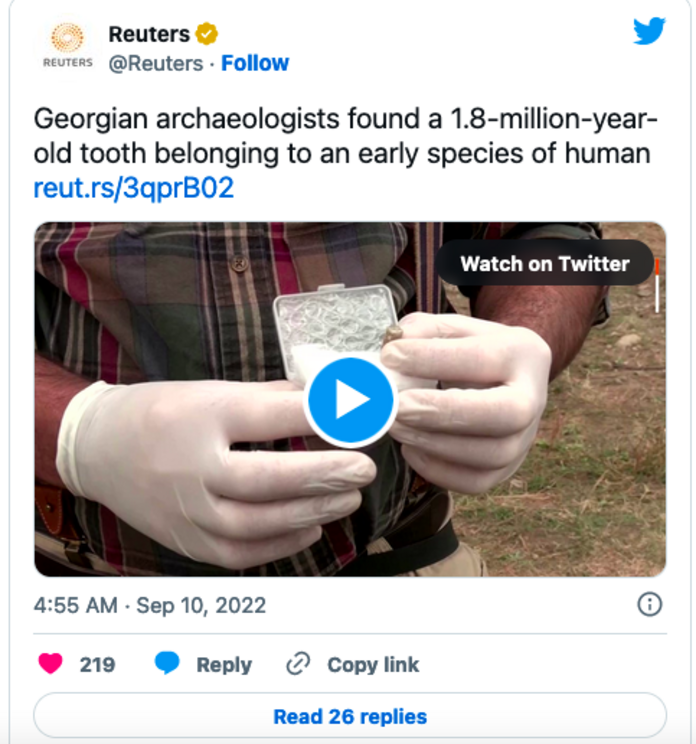Historic! 1.8 million years old human tooth discovered in Georgia
Georgia became the site of new historical development as archaeologists found a 1.8 million years old human tooth.

The discovery was made near the Orozmani village located close to Dmanisi. Interestingly, Dmanisi is also the location where archaeologists had previously discovered human skulls belonging to the same era as the tooth.
The skulls, however, were found during the 1990s and the 2000s. The skulls were the oldest human remains not found in Africa during that time.
The discovery of the skulls made archaeologists believe that after leaving Africa, ancient humans moved to the south of the Caucasus area and settled down.
The discovery of the tooth is further evidence that bolstered this belief.

National Research Center of Archaeology and Prehistory of Georgia announced the discovery of the tooth.
The Center stated that Orozmani and Dmanisi could be the centres where the oldest humans or early Homo Sapiens settled after they left Africa.
A British archaeology student, Jack Peart, made the tooth discovery. He described his discovery as having an enormous impact on archaeological beliefs worldwide.
He stated that with this discovery, Georgia had become an important place for palaeoanthropology and the human evolution story.
Another archaeologist, Giorgi Kopaliani, with the Georgian National Museum, said that Peart discovered the tooth and showed it to his team that led the excavation.
After that, the Museum contacted their paleontologist, who confirmed the tooth belonged to a human.
The team of the Georgian National Museum started digging at the site in 2019. However, due to the pandemic, the digging stopped. It resumed last year, after which the team discovered pre-historic tools and ancient animal relics.
According to scientists, ancient humans started their migration journey from Africa around 2 million years ago.
One of the oldest human fossils, a partial jaw, was discovered in Ethiopia. The fossil dates back to 2.8 million years ago.
